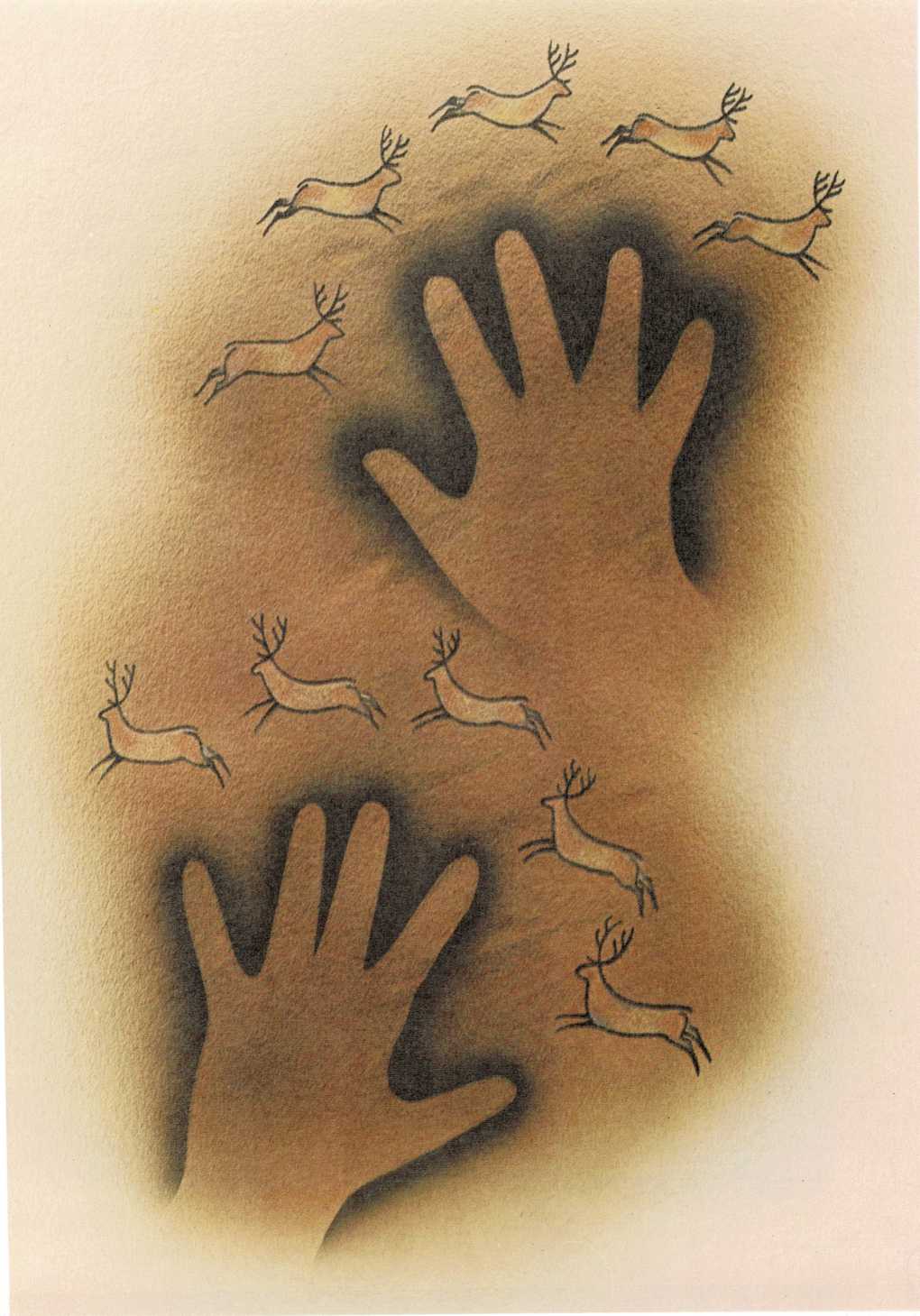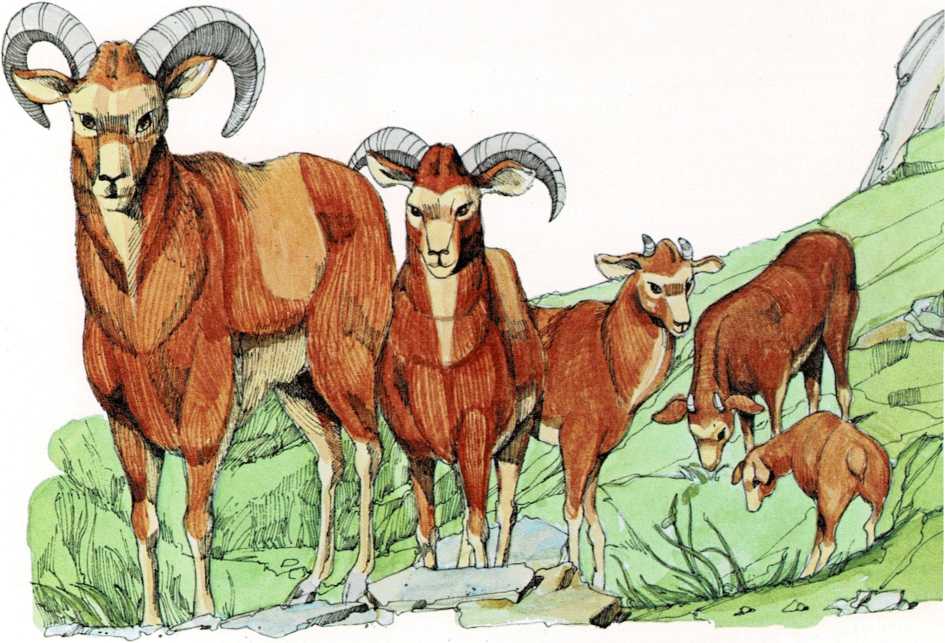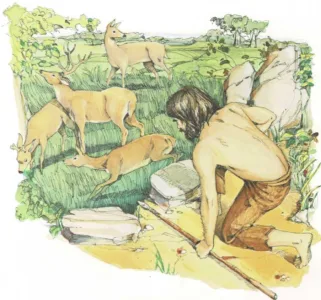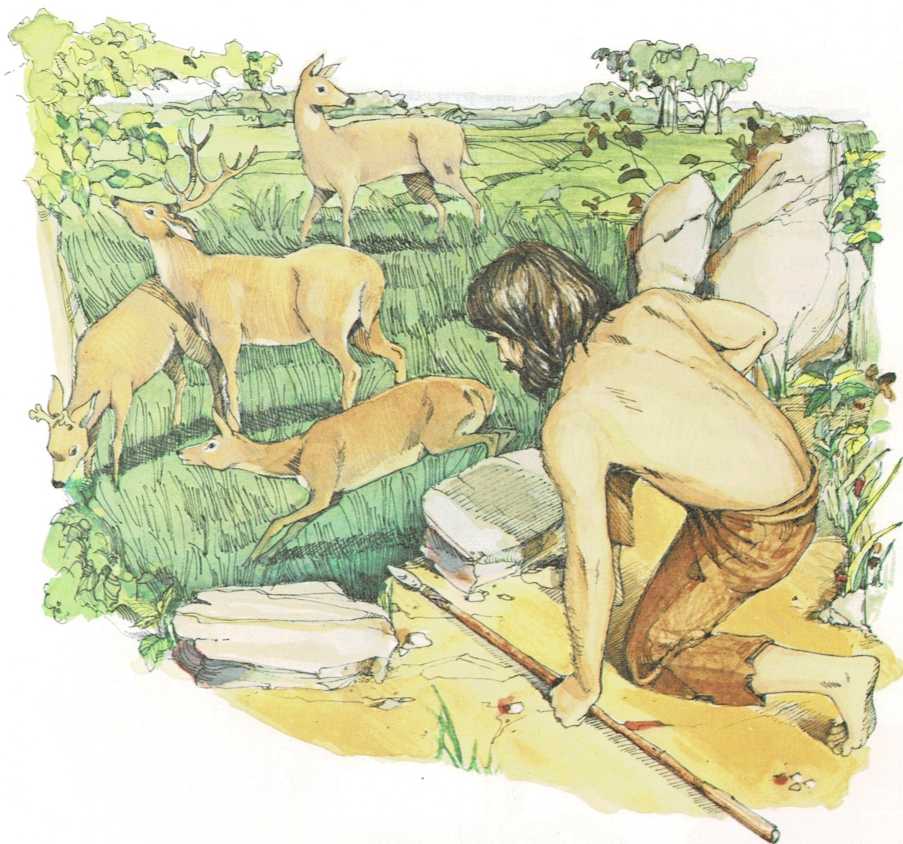
Stop at ten
Before people began to count, they probably had no name for any number
but one. Suppose a hunter wanted to tell about a small herd of four to
six deer he had seen. He might just say it was a “hand” of deer. Then
everyone would know that he meant there were about as many deer as there
are fingers on a hand. For large numbers of things, people probably just
said “many.” And “many” might mean anything from ten to one hundred.
But when people first began to count, they
needed a name for every number. There’s no way to tell, now, where the
names for numbers came from. Perhaps they were made-up words. Or perhaps
they were words that meant other things, but were used as “number
names.”
The people of long ago gave special names to only the first ten numbers.
The names for most of the other numbers were just made up using the
names of the first ten numbers. The words eleven and twelve sound as if
they are special names, but they really aren’t. Eleven comes from an Old
English word that means “one left over after ten,” and twelve means “two
left over.” Our word thirteen really means “three
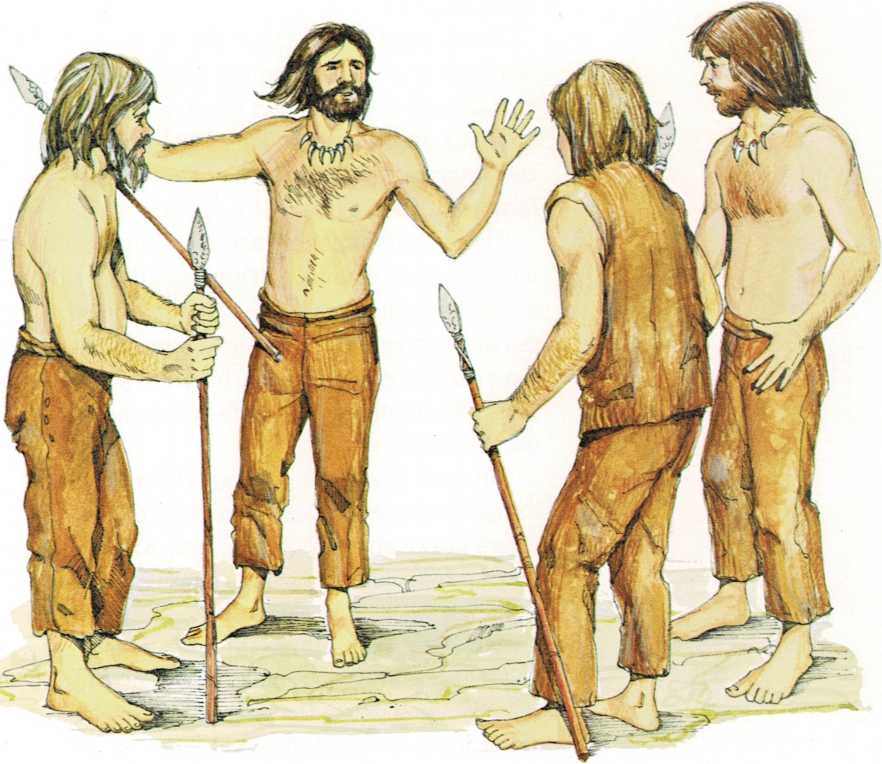
and ten.” If you say thirteen aloud you’ll hear what sounds like
“three-ten.” The same is true of fourteen through nineteen. And twenty
means “two tens,” thirty means “three tens,” and so on. These number
names sound like the number of tens each one stands for.
People gave special names to the first ten numbers because of the way
they learned to count. In the beginning, people did all their counting
on their fingers. Because they had ten fingers, they counted things by
tens. They would count up to ten fingers and then start over. Ten became
a sort of “stopping place” in counting. So the first ten numbers were
given special names.
People soon decided that the number one hundred was also a stopping
place because it was ten of something—it was ten tens. So they gave
it a special name. Thousand was special, too, because it was also ten of
something—ten hundreds. So they gave it a special name.
These “ten numbers” are very important in our system of counting. Think
of all the things around you that are broken up into units of ten or are
a certain number of tens. A decade is ten years. A century is one
hundred years—ten tens. The numbers on a car’s speedometer are marked
in tens.
But wait a minute, you say, there are lots of things that aren’t counted
in units of ten.
There are twelve inches in a foot. And there are twenty-four hours in a
day. There are seven days in a week. And there are twelve months in a
year. Why aren’t these things in tens? There are reasons, of course.
You’ll find out what they are when you get to the part of this book
called “How long, how fast, how hot, how heavy?”
